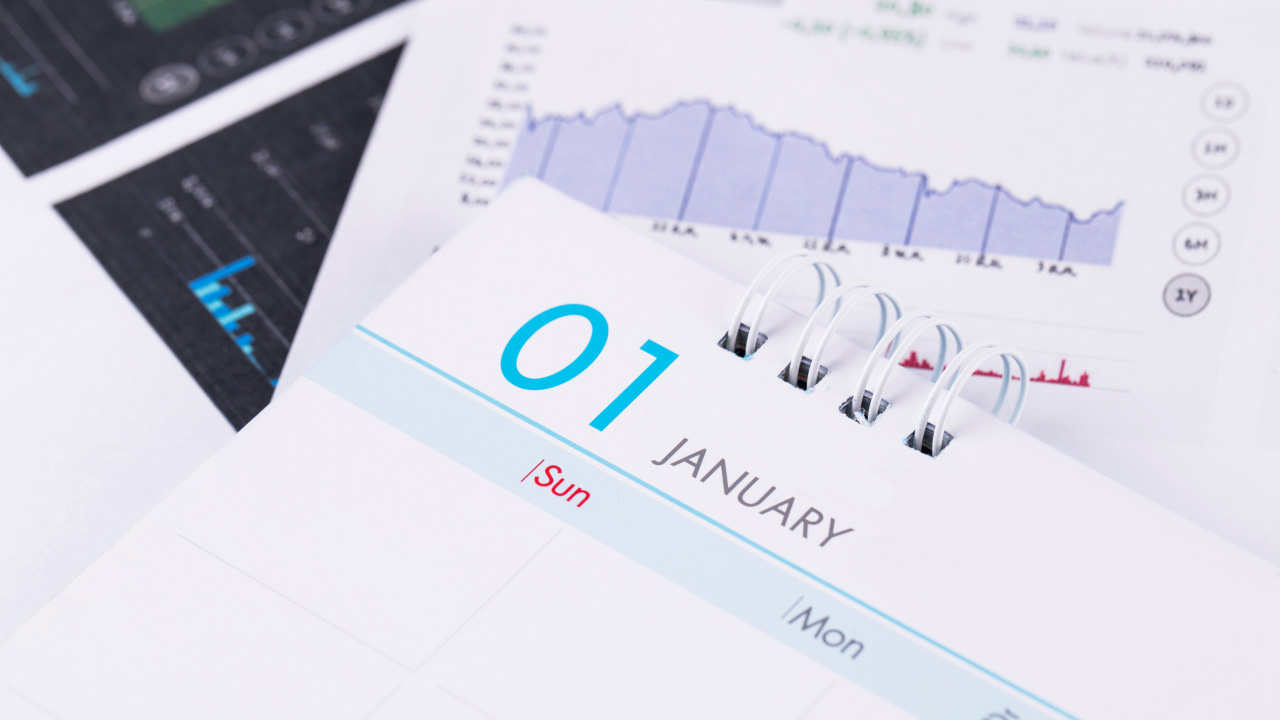The forex economic calendar is a trader's roadmap for crucial data releases and economic events that can make or break their trades. If a trader does not know how to read an economic calendar, they may inadvertently miss numerous opportunities and expose themselves to increased risks in the financial markets.
In this article, we discuss how one can navigate through an economic calendar seamlessly.
What is an economic calendar?
An economic calendar is a tool that provides a schedule of upcoming economic events, data releases, and announcements from various countries that have the potential to influence currency exchange rates. It typically includes important indicators like interest rate decisions, GDP reports, employment figures, and inflation data. Forex traders use this calendar to stay informed about these events and anticipate how they might impact currency markets. This allows them to make more informed trading decisions and manage risk effectively.
Important parts of a forex economic calendar
Date
This is the day the economic event or data release is scheduled to occur. Traders and investors use the date to plan their trading strategies and be prepared for market movements.
Time
The time indicates when the event is expected to be released. Traders must know the timing, as currency markets can react swiftly to new information.
Event
This section briefly describes the economic event or data release, such as Nonfarm Payrolls or Interest Rate Decisions, allowing traders to understand what the event entails.
Country/Region
It specifies the country or region to which the event is related. Since forex is a global market, events from various countries can impact currency pairs differently.
Previous, forecasted, and actual values
- The previous value represents the data from the previous release, giving traders historical context.
- The forecasted value is the consensus estimate of the data in the current release.
- The actual value is the real data once released, and traders often compare it to the forecast to gauge the market's reaction.
Event's significance
Economic calendars often assign a level of importance or significance to each event, typically categorized as high, medium, or low. This helps traders prioritize and focus on events that are more likely to substantially impact the Forex market.
How to read an economic calendar
Select the desired timeframe
Begin by choosing the timeframe one wants to focus on. Most economic calendars offer options like today, tomorrow, this week, or next week. Click next week to view events scheduled for the upcoming week.
Apply country/region filters
To narrow the list of events to specific countries or regions, look for the Show Filters or Country/Region option. Click on it, then select the countries or regions one is interested in. For instance, a trader can tick Australia and the United States to display events relevant to these countries only.
Consider time zone adjustments
Ensure event times are adjusted to the local time zone to avoid any confusion when planning the trades or setting alerts. This is especially important if the trader trades in international markets. Traders can adjust event times to their local time zone on an economic calendar by looking for a time zone setting or option within the calendar's interface. Typically, they can find this in the calendar's settings or preferences.
View the calendar
Once a trader has applied the filters, the calendar should update to display only the events that meet their selected criteria. Traders will see a list of events with their respective dates, times, descriptions, countries/regions, and expected impact levels.
Analyze event details
Click on individual events to access more detailed information, including the previous value, forecasted value, and the actual value (once the event occurs). This data can help traders assess the potential market impact and whether it aligns with their trading strategy.
Set event alerts
Many economic calendars offer the option to set event alerts or notifications. Utilize this feature to receive timely reminders for high-impact events that match one’s trading strategy. It can ensure traders do not miss crucial market-moving announcements.
Customize the calendar
Traders can customize the economic calendar to suit their unique needs and strategies, enhancing their decision-making in financial markets. They can select specific timeframes, filter events by countries or regions, and categorize data by economic event types. Adjusting volatility settings allows them to focus on market-moving events while setting event alerts ensures they never miss critical announcements.
Benefits of reading an economic calendar
- Risk management: Traders can anticipate market volatility by tracking scheduled economic events. This allows them to implement risk management strategies like stop-loss orders and position size adjustments to safeguard their capital during turbulent times.
- Strategic planning: Economic calendars help traders plan their trades by aligning strategies with their release dates of key economic indicators. For instance, they may avoid opening positions just before major announcements to minimize market turbulence.
- Global news monitoring: Economic calendars cover global events, enabling traders to monitor news and economic developments worldwide. They can assess potential currency market impacts and adjust their trading decisions accordingly, staying ahead of market-moving news.
Get hold of a forex economic calendar today
Reading an economic calendar is vital for informed decision-making, efficient risk management, and, ultimately, success in trading. Traders who neglect the economic calendar may enter trades without understanding the potential impact of major economic events, leading to unexpected volatility and losses. Hence, each trader must be equipped with the skill to read an economic calendar at all times.
Disclaimer: All material published on our website is intended for informational purposes only and should not be considered personal advice or recommendation. As margin FX/CFDs are highly leveraged products, your gains and losses are magnified, and you could lose substantially more than your initial deposit. Investing in margin FX/CFDs does not give you any entitlements or rights to the underlying assets (e.g. the right to receive dividend payments). CFDs carry a high risk of investment loss.




